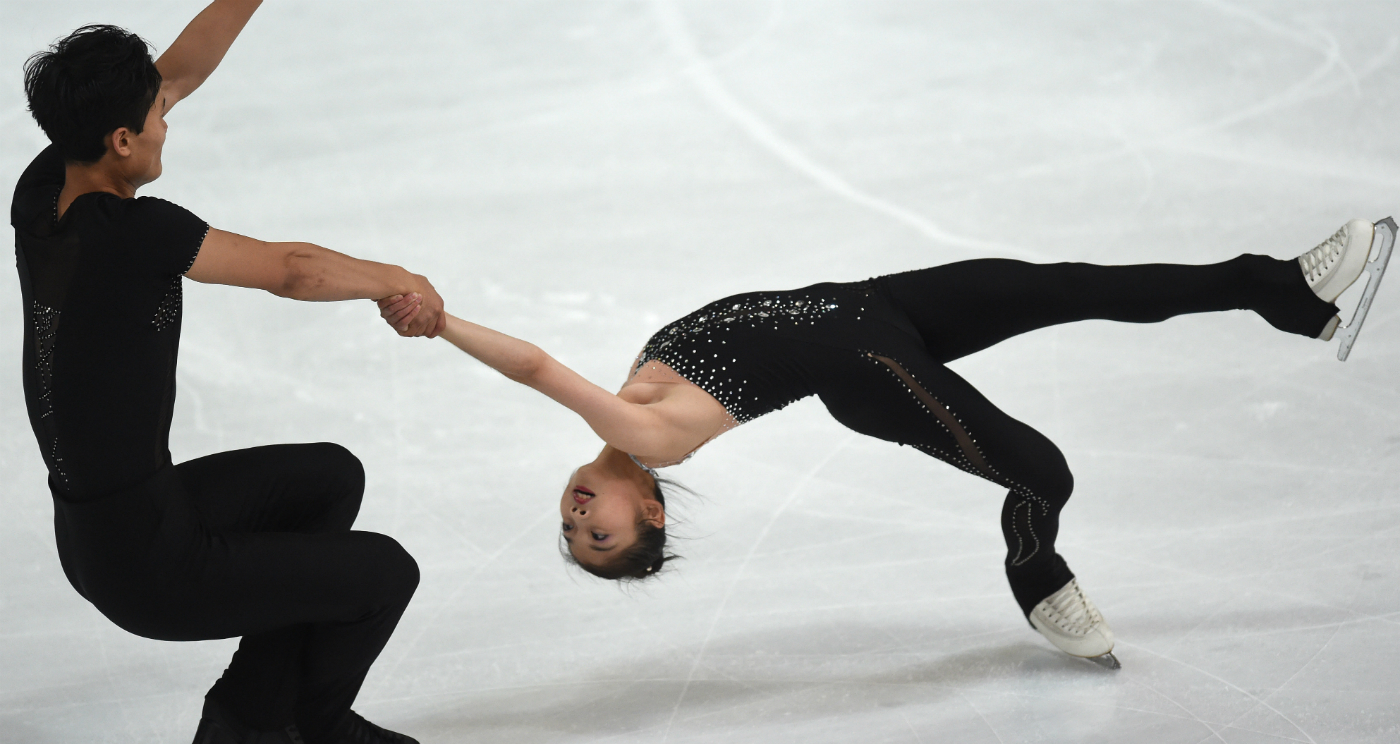Winter Olympics 2018: more politics than sports?
From North Korea to Russia, this year’s Games looks set to have wide-ranging repercussions

A free daily email with the biggest news stories of the day – and the best features from TheWeek.com
You are now subscribed
Your newsletter sign-up was successful
The Pyeongchang Winter Olympics in South Korea next month will offer an impressive spectacle of sporting prowess but the event could be overshadowed by politics.
North Korea is considering sending athletes to the Games, with much depending on talks in so-called truce village Panmunjom tomorrow, when officials from North and South Korea will sit down together for the first time in two years. Two North Korean athletes have qualified - figure skaters Ryom Tae Ok and Kim Ju Sik - but Pyongyang did not confirm their slot by the 30 November deadline, Reuters reports.
The stated aim of Tuesday’s meeting is to “discuss whether North Korea sends a delegation to the 2018 Winter Olympics”, says North Korea expert Michael Madden in an article for the BBC, but the talks may also be used to resolve political tension. “While their attendance wouldn’t resolve the long-standing crisis on the Korean Peninsula, it would, as both sides have said, be a gesture of peace.”
The Week
Escape your echo chamber. Get the facts behind the news, plus analysis from multiple perspectives.

Sign up for The Week's Free Newsletters
From our morning news briefing to a weekly Good News Newsletter, get the best of The Week delivered directly to your inbox.
From our morning news briefing to a weekly Good News Newsletter, get the best of The Week delivered directly to your inbox.
Nuclear tension
Tension has been building for months over Pyongyang’s nuclear and weapons programme. The Daily Telegraph speculates that tomorrow’s “possible agenda items could include the delegation’s travel routes, financial costs, and whether the two Koreas, who are still technically at war, would march together under a unified flag at the opening and closing ceremonies”.
The US plans to postpone its joint military exercises with South Korea during the Games, to “de-conflict” the Olympics and to focus on the security of the sporting event, Yonhap News Agency reports.
Although UN ambassador Nikki Haley hinted in December that American athletes might skip the Pyeongchang Olympics because of tensions in North Korea, the US is expected to send a delegation.
A free daily email with the biggest news stories of the day – and the best features from TheWeek.com
The Guardian says the US may even have an advantage at the event, “given that Russia have been banned from competing”.
Russia ban
Unlike North Korea, Russia will be noticable by its absence. In what Business Insider calls an “unprecedented punishment”, the International Olympic Committee (IOC) slapped a ban on Russia last month over a doping scandal.
The fallout will be “far-reaching”, says Newsweek. Although some “clean” Russian athletes may still compete, they will not be able to wear their national colours or march behind their flag.
“Every competition will be affected by the absence of Russian athletes, and every national team will be under greater scrutiny for any hint of cheating or trying to gain an unfair advantage,” Newsweek adds.
South Korea may also feel the financial effects if the ban on Russia translates into fewer Russian tourist dollars spent in Pyeongchang.
Vladimir Putin has described the IOC’s decision as “absolutely staged and politically motivated”, reports The Strait Times.
-
 One great cookbook: Joshua McFadden’s ‘Six Seasons of Pasta’
One great cookbook: Joshua McFadden’s ‘Six Seasons of Pasta’the week recommends The pasta you know and love. But ever so much better.
-
 Scientists are worried about amoebas
Scientists are worried about amoebasUnder the radar Small and very mighty
-
 Buddhist monks’ US walk for peace
Buddhist monks’ US walk for peaceUnder the Radar Crowds have turned out on the roads from California to Washington and ‘millions are finding hope in their journey’
-
 What happens now that the US-Russia nuclear treaty is expiring?
What happens now that the US-Russia nuclear treaty is expiring?TODAY’S BIG QUESTION Weapons experts worry that the end of the New START treaty marks the beginning of a 21st-century atomic arms race
-
 Epstein files topple law CEO, roil UK government
Epstein files topple law CEO, roil UK governmentSpeed Read Peter Mandelson, Britain’s former ambassador to the US, is caught up in the scandal
-
 Iran and US prepare to meet after skirmishes
Iran and US prepare to meet after skirmishesSpeed Read The incident comes amid heightened tensions in the Middle East
-
 Which way will Trump go on Iran?
Which way will Trump go on Iran?Today’s Big Question Diplomatic talks set to be held in Turkey on Friday, but failure to reach an agreement could have ‘terrible’ global ramifications
-
 Israel retrieves final hostage’s body from Gaza
Israel retrieves final hostage’s body from GazaSpeed Read The 24-year-old police officer was killed during the initial Hamas attack
-
 China’s Xi targets top general in growing purge
China’s Xi targets top general in growing purgeSpeed Read Zhang Youxia is being investigated over ‘grave violations’ of the law
-
 Ukraine, US and Russia: do rare trilateral talks mean peace is possible?
Ukraine, US and Russia: do rare trilateral talks mean peace is possible?Rush to meet signals potential agreement but scepticism of Russian motives remain
-
 Panama and Canada are negotiating over a crucial copper mine
Panama and Canada are negotiating over a crucial copper mineIn the Spotlight Panama is set to make a final decision on the mine this summer